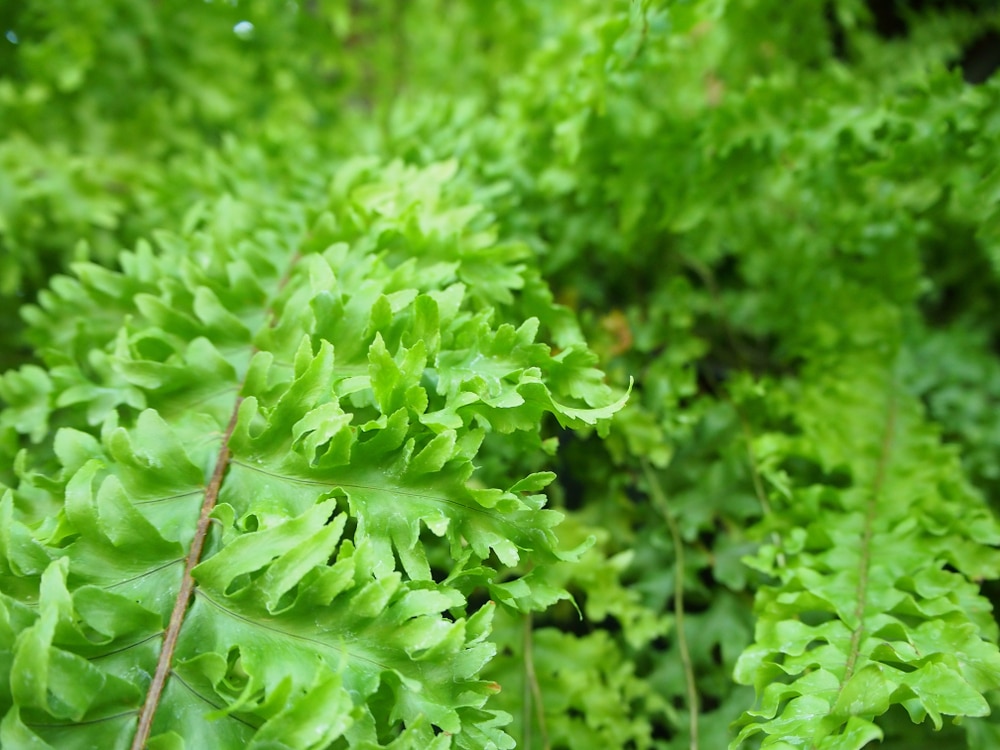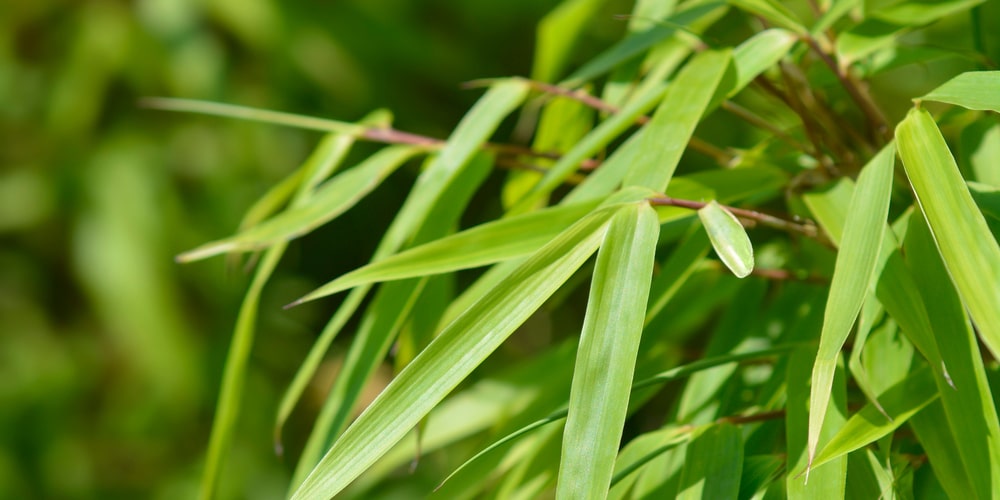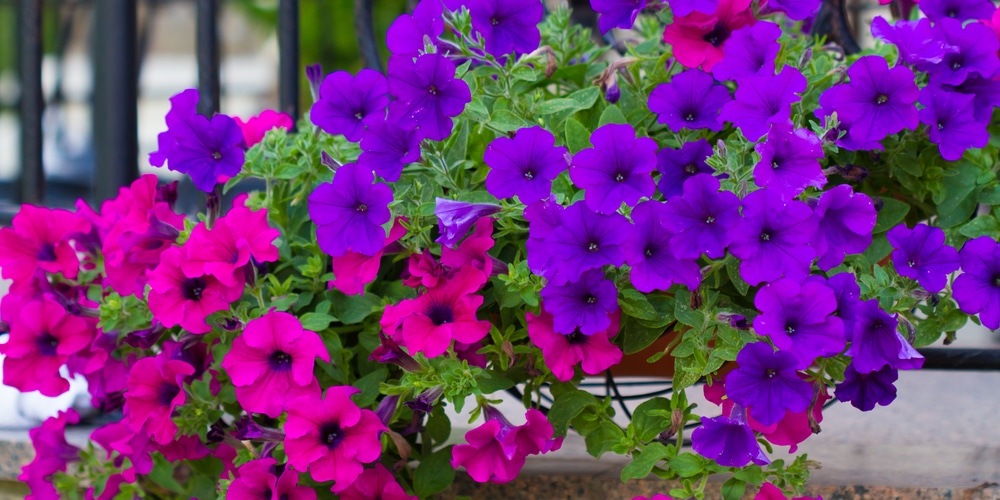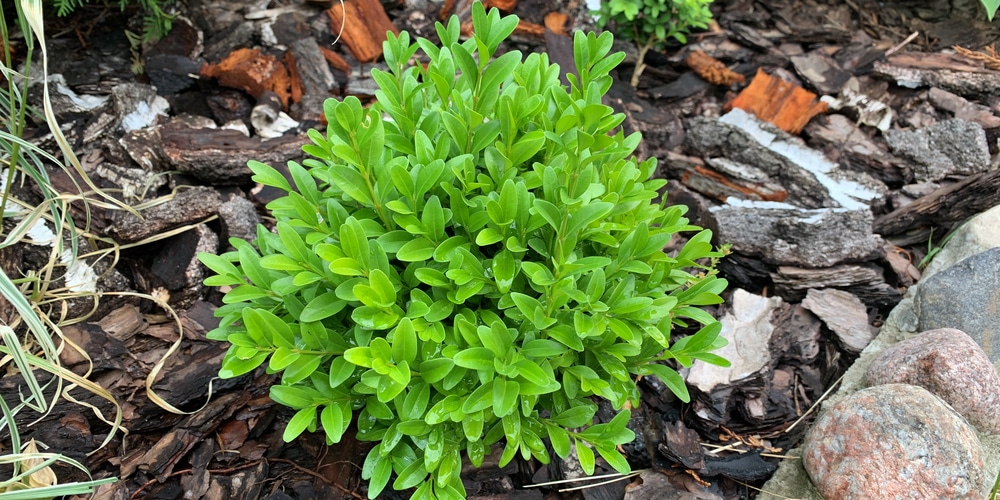A balcony is a great place to enjoy growing some greenery. Growing balcony plants doubles as a great way to help isolate your little outdoor oasis and create some privacy.
But what are the best balcony privacy plants? Typically, you’ll want to look for qualities like size and density to help you determine which variety will be best for you. Maintenance is also an essential factor.
Choosing a Plant
You’ll want to keep some critical information in mind when selecting plants for your balcony. Here’s a list of factors to consider:
- Plant Hardiness
- Maintenance Requirements
- Care Requirements
- Size
- Density
- Appearance
Fluffy Ruffle Fern
The fluffy ruffle fern is an excellent plant for helping create a barrier between yourself and the outside world. These plants tend to grow between one and two feet tall and look great on a sturdy table or in a hanging basket.
This plant grows long fronds with small, elongated leaves. The fronds grow outward away from the plant, creating a dense bush of foliage. Its bright green leaves are beautiful to look at and provide great curb appeal.
This plant is relatively delicate and will need to be brought indoors during cold weather. It is best suited for warmer zones 10-12 otherwise. It will need moist conditions and bright, indirect light. Occasional pruning will help keep it healthy and beautiful.
Bamboo
Bamboo is one of the most popular plants for creating privacy since it essentially grows into a wall. This vertical-growing plant produces long, tall shoots that have leafy green foliage, and some varieties are denser than others.
This plant will get tall very quickly, so many people choose to put it in planters on the ground to give it sufficient room to grow. This factor will be significant if your balcony is covered.
There are several types of bamboo, so the good news is that you can likely find a variety that will grow in your area. It will need regular, shallow watering, as opposed to a long soak, and plenty of direct sunshine.
Petunias
Basket hanging plants should not be overlooked when selecting plants for privacy, especially if your roof is covered. Hanging petunias are a great selection for adding a splash of color and intrigue to your space.
Petunias come in a wide selection of colors. They grow in large mounds and look stunning when trailing over the edge of a basket. The blooms grow away from the plant on dense bushes of green leaves.
These plants are generally treated as annuals and require little care other than watering and ample sunlight.
Pampas Grass
Pampas grass is an excellent plant for adding an extra layer of protection from prying eyes and can grow in several climates. There are several varieties to choose from, but many of them resemble long, green grass with feathery golden plumes.
It’s no wonder so many love this fascinating plant. It looks lovely while swaying in the breeze and grows tall and dense.
It grows quickly and can get quite large, so if you’re looking for plenty of coverage, this could be the plant for you. It prefers direct sunlight and moist, well-draining soil. It will also need to be cut annually in early spring or late winter.
Boxwood Shrub
Boxwood shrubs are densely growing shrubs that are perfect for any topiary enthusiast. There are many different types, and the tightly growing branches can be easily shaped into whatever design you desire. You might enjoy small round shrubs, pointed trees, or even perfect square boxes.
In any case, they are nearly impossible to see through, so they are perfect for privacy. These shrubs are also attractive and evergreen, meaning they can grace your balcony year round.
These plants are easy to care for and thrive in several soil conditions but prefer dry to slightly moist conditions. They should get full to partial sunlight, and you will need to prune them once or twice a year.
Conclusion
Growing privacy plants for your balcony isn’t tricky. There are plenty of different options that can turn your balcony into a green retreat for your home. Do some research into what zone you live in, your specific environment, and how much care you can put into a plant. From there, it will be fairly easy to decide which one is right for you.





